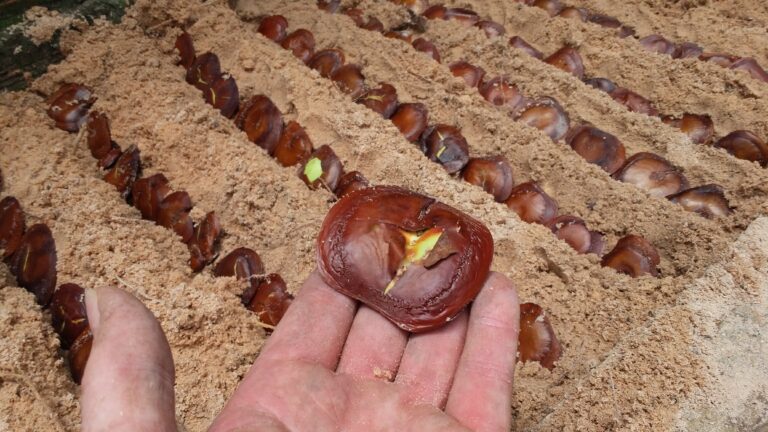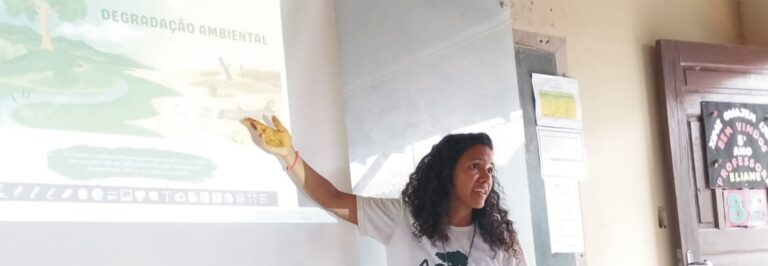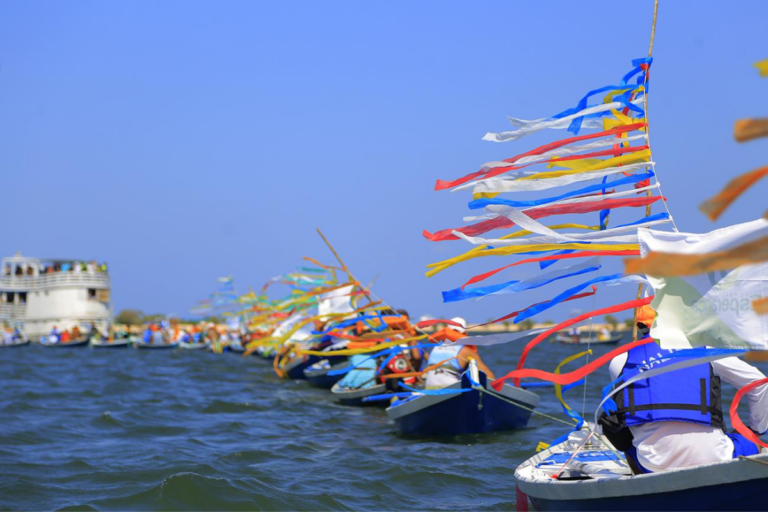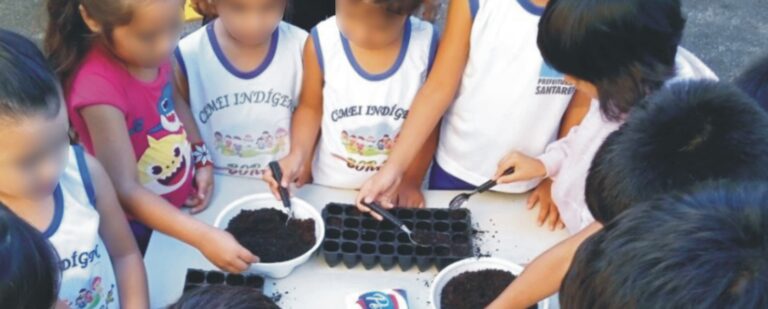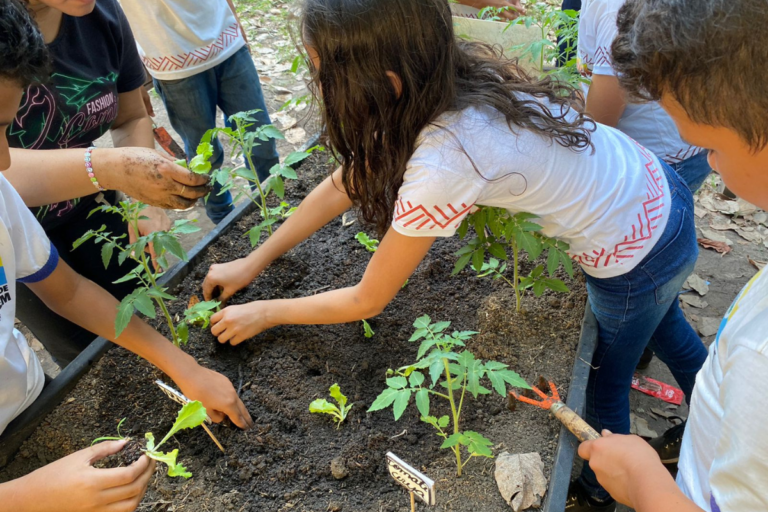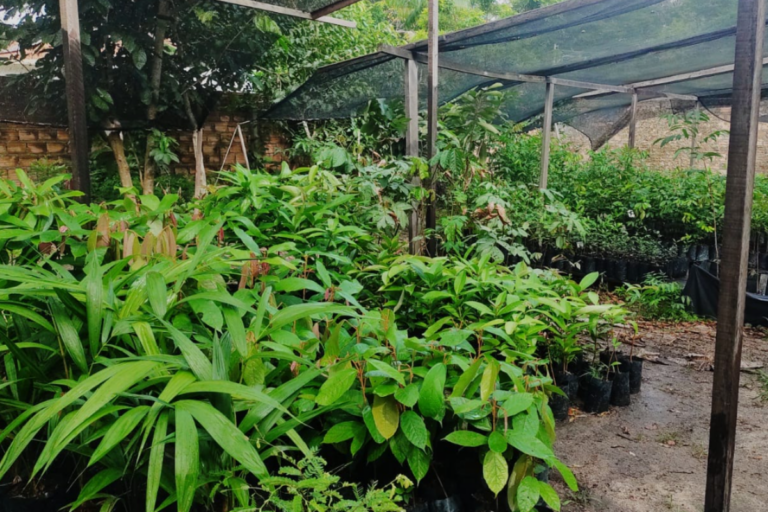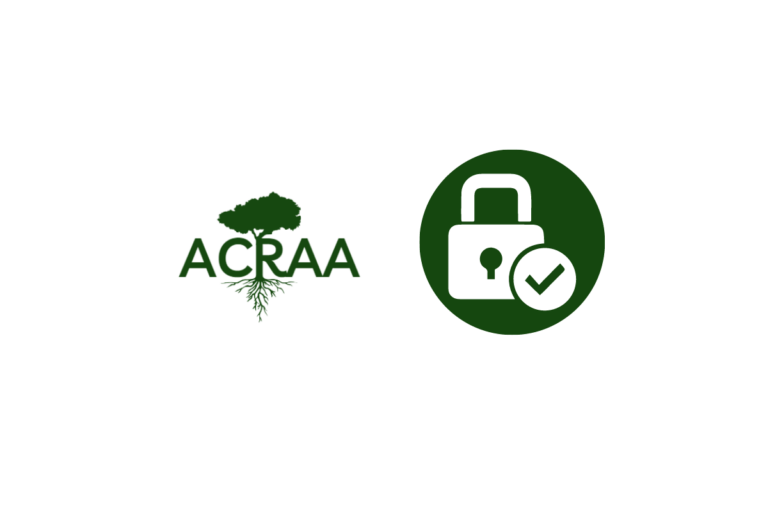Baixo Tapajós
In the region of Alter do Chão, along the banks of the Tapajós River, ACRAA’s ecological restoration efforts are transforming degraded areas into thriving spaces of life and biodiversity. Since 2020, ACRAA has been working to restore riparian forests, streams, and flooded woodlands—critical ecosystems for protecting water resources and maintaining local ecological balance. With its own nursery, the association has cultivated and planted over 1,000 native trees, including species such as açaí, andiroba, comandá, pirauxí, and others essential for forest regeneration. The Impact of Restoration Each seedling planted by ACRAA represents a step toward restoring native vegetation, helping to: Protect springs and riverbanks, preventing erosion and siltation; Reestablish habitats for Amazonian wildlife, including birds, primates, and pollinating insects; Enhance climate resilience, contributing to the balance of the local microclimate. Beyond reforestation, ACRAA integrates Indigenous traditional knowledge and scientific expertise, partnering with Borari communities and institutions like UFOPA to ensure restoration is both…
Escolas Indígenas Munduruku - Planalto Santareno
ACRAA PROJECT IN SCHOOLS MUNDURUKU INDIGENOUS SCHOOLS SANTERÉM PLATEAU In 2023, we were able to start expanding the “ACRAA at School” project, taking environmental education activities to four Munduruku indigenous communities, these located on the Planalto Santareno (Santarém Plateau), in the Baixo Tapajós region. The first activities were carried out in the indigenous community of Açaizal, in partnership with FUNAI. Here we gave lectures to students and teachers at the Wapurum-Tip Indigenous School, where we addressed issues related to environmental conservation, and solutions to minimize problems associated with of garbage and water quality. Previous Next Previous Next We also started the planting of an agroforestry system within the school limits, where what is sought is the production of food and products derived from the forest to complement school lunches – and also generate income so that the school can offer better quality education to its students. In 2025 we intend…
Adopt a Tree
Adopt a Tree The ecological restoration actions that ACRAA carries out in the Amazon Rainforest are financed through our projects. The Adopt a Tree project consists of you contributing R$50.00 and adopting a tree in the Amazon. This tree will go to a waiting bench and during the rainy season, between January and June, we will plant the tree for you. Each tree is marked with a number and its planting is recorded using GPS coordinates. On the planting date and then once every 6 months, for 2 years, we will send the coordinates of the adopted tree and photos of its development to the email provided by you. We will also send you a Tree Planting Certificate which contains the number of the adopted tree, the species, the GPS coordinates and the average amount of CO2 captured. HOW TO COLLABORATE? Just sign up and we’ll be in…
Baixo-Tapajos
REGIÃO AMAZÔNICA DO BAIXO-TAPAJÓS Reconhecida internacionalmente por suas belezas naturais a Região Amazônica do Baixo-Tapajós também chama atenção pela complexidade socio-ambiental que apresenta. Berço de 14 etnias indígenas diferentes, esta região também é constituida por ribeirinhos, imigrantes, garimpos ilegais, grandes fazendas de soja e outras monoculturas, tudo isso envolto de um ecossistema complexo e diverso. Previous Next Previous Next Além da imprecionante biodivercidade que abriga a Região do Baixo-Tapajos, com suas florestas milenares, seus rios, igarapés e igapós, este território faz parte do maior aguífero do mundo, o Aquífero Alter do Chão. Este aquífero está distribuido por uma extensa área da região Amazônica, ocupando uma área aproximada de 410.000Km². O grande volume de água deste aquífero o torna extremamente importante para o fornecimento de água doce para as populações que vivem nestas regiões. A conservação e sustentabilidade do aquífero Alter do Chão também perpassa pela conservação da floresta, pois boa parte…
CEMEI Borari
ACRAA AT SCHOOL PROJECT CEMEI Borari The ACRAA at School project commenced at the CEMEI Borari School [1] in Alter do Chão at the beginning of the 2022 school year. Here we planted trees inside and outside the educational center to ease the heat, which will transform the school space into a more wooded and cooler environment. The pre-school children participated in the activities, helping with the planting of trees. Previous Next We also held lectures with the CEMEI students and teachers, with the theme of environmental awareness and the importance of children in the process of environmental education of thier parents. In March 2023 we started building a raised bed for growing vegetables for the student’s lunches, and for medicinal plants. Lectures and monthly activities will soon be held here with children from the educational center and their teachers. Previous Next Previous Next In April of 2023 an initial…
Escola Indígena Borari
ACRAA AT SCHOOL PROJECT BORARI INDIGENOUS SCHOOL The “ACRAA at School” project began at the Borari Indigenous Elementary School [1] in Alter do Chão in April of 2022 with revitalization of the school nursery. This nursery was sitting unused at this time and in a bad state of repair. In August 2022 the project began with lectures and practical classes, working on issues related to environmental education through the school garden theme. Several topics were covered in the form of workshops with three 5th grade classes, each class with an average of 16 students. Previous Next At the Borari Indigenous School, the “ACRAA at School” project takes place in partnership with the Notório Saber Project, which sets up schedules for workshops and practical activities that take place throughout the semester. A teacher at the school monitors the project activities, with the aim to involve the school community more in actions…
Restauração Ecológica
Ecological Restoration at ACRAA: Reviving the Amazon’s Vital Ecosystems At ACRAA, our ecological restoration work goes beyond simple reforestation – it’s a science-based process of reviving entire native ecosystems. Since our founding in 2020, we’ve specialized in restoring critical habitats including the riparian forests of the Alter do Chão-PA region, Riparian forests along the Tapajós River and fragile wetland ecosystems (igarapés and igapós). Our Proven Methodology: Native Seed Collection: We carefully gather seeds from local tree and shrub species, collecting from the plants native to the ecosytems we are restoring Nursery Cultivation: At our dedicated nursery in Alter do Chão, we nurture these seeds into robust seedlings Strategic Planting: We plant these native seedlings in degraded areas using ecological best practices Previous Next Tangible Impact (2020-2025): ✓ 1,000+ native trees planted in high-priority areas ✓ Focus on combating erosion due to wind on the Ilha do Amor – the “postcard”…
Educação Ambiental
We see environmental education as one of the fundamental pillars for building a social and economic system that is sustainable and in harmony with the environment. Studying the environment we live in is not an isolated factor, environmental education also reaches socioeconomic, political, cultural and historical problems through the direct or indirect interaction of these fields with the environment. The planning of an environmentally conscious education is focused on the environmental responsibility of each person, being able to achieve behavioral changes in students making them influential and active in the defense of the environment. In this context, ACRAA created the “ACRAA at School” program, with the aim of promoting and stimulating environmental awareness among students in kindergarten and basic education, with priority given to indigenous schools in the Baixo Tapajós region. We already have projects under development in two indigenous schools of the Borari ethnic group (in Alter do Chão)…
Sustentabilidade
Sustainability That Transforms: Forest Gardens and Agroforestry in the Amazon At ACRAA, we develop sustainability projects that go beyond conservation—we create productive systems that regenerate the forest while supporting local livelihoods. Our initiatives multiply productive green areas, from small family forest gardens to community agroforestry systems, forming a network of sustainable landscapes in the heart of the Amazon. Why is this work essential? For local communities, these systems represent a reconnection with ancestral forest management practices, now enhanced by sustainable techniques. Forest gardens ensure food security with native species like açaí, cupuaçu, and Brazil nuts, while preserving local biodiversity. For non-Indigenous farmers in the region, agroforestry offers a viable economic alternative to predatory expansion, proving that it’s possible to generate income while keeping the forest standing. Previous Next Our Integrated Approach: Seedling Distribution: We provide 30+ species of productive native seedlings, selected in dialogue with each community. Restoration That Nourishes:…
Right to Data Privacy
DIREITO À PRIVACIDADE DE DADOS Este espaço é dedicado à proteção dos dados dos usuários da nossa página. Ao realizar o preenchimento dos dados abaixo, você poderá solicitar os seus dados pessoais que por ventura estejam sobe o domínio do ACRAA. É possível requisitar a correção de dados incompletos, errados ou desatualizados. Também é possível a eliminação de um ou mais dados do nosso banco de contatos. Nós cuidamos dos seus dados e dos seus direitos. contact@acraabrazil.org POLÍTICA DE PRIVACIDADE E USO DE DADOS DIREITO À PRIVACIDADE DE DADOS Rua Everaldo Martins, s/n., Bairro Carauari, Alter do Chão, Santarém-PA, CEP 68109-000. contact@acraabrazil.org Instagram Facebook Linkedin
